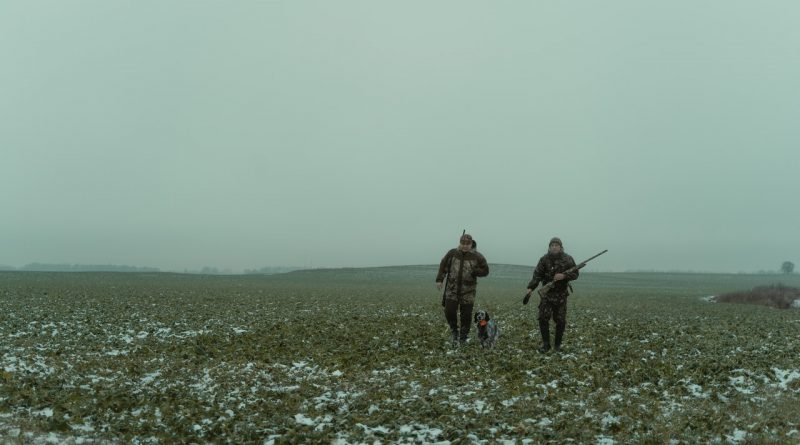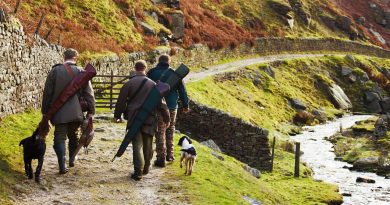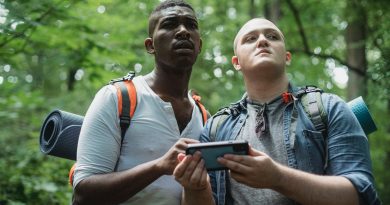Navigation Tips for Hunters – Part 1
Getting lost in the woods isn’t fancy, no matter how you look at it.
Navigating the woods right is an indispensable factor in a hunter’s sojourn into uncharted territory.
That’s why it’s essential to leverage the five ways to navigate using a GPS below:
Ways Hunters Should be Using a GPS
For trailing injured game and re-tracing your steps
I don’t know if I’m a loner on this one, but some game just don’t seem to drop where you want them to.
Sure, some targets drop dead with a clean shot, but others, particularly larger game, are more resilient. You may have to trace your ‘kill’ a few feet or up to a few miles before they give in.
And how do you find your way back in such a scenario? Surely, the deer or coyote won’t go through paths you already know.
Imagine crossing multiple ponds and thickets before getting your game. In some cases, blood trails could stop for several meters and continue at a different path your target took. How do you manage such a situation? Should you head back and forget the animal?
Of course not!
Then what works?
Enter GPS.
With your handheld GPS, you can easily pinpoint where the game’s heading to, and track back with minimal issues.
Insurance against losing your way
Sure thing is, no hunter wants to be a red-faced, SOS-waving dude.
That’s why most professional hunters I know prefer carrying a GPS as a last resort when things get tough.
In some hunting grounds, several audio cues could lead you the right way. For instance, the sound of passing trains, traffic at a highway not too far off, planes, etc. could help.
But what happens when you have access to none of these sound cues?
Most vast tracts of land where the game you seek lurk are far from everything civilization. If you don’t want to look like a patsy that needs saving, get a GPS for your next hunt.
And when you’re searching for the best GPS for hunting, consider selecting an option with a built-in compass. But just to be sure, I always pack an old-fashioned compass and two battery sets for my GPS.
If the GPS doesn’t give out mid-adventure, it’s an excellent tool to navigate uncharted territory. It shows where you’ve passed, how long you need to travel and much more.
Pinpointing stands during scouting
When you’re checking out for hints of game around certain areas, a handheld GPS could be your handy navigation tool.
Let’s say it’s deer-hunting season. If you can point out suitable trees for stands, a handheld GPS can do much. With this device, you can get info on wind direction, surrounding terrain, and other essential details.
Also, handheld GPS devices give you the ability to name certain points on its interface you’ll head back to later. So, if you don’t have any high-tech markers in tow, GPS could be an ideal tool. With this system, you can return to hang stands at areas you want.
And if you’re targeting certain spots when it’s daytime or at night, these devices are ideal locators. Also, if you plan to use positions those stands were fitted in the next hunting season, why not? You’ve already recorded it on your GPS, so there’s little to be bothered about.
General scouting
When you’re scouting on grounds you’ve never hunted in, GPS is king.
You can get directions on the ideal path to follow and pinpoint where you need to return to without issues.
And when you’re all-into icons, GPS has that too.
You can use several built-in descriptions to detail your environment. If you’re more of a note-taking hunter, GPS still has what you need. You can easily describe points across your environment with anything you can remember easily.
All these features make future scouting efforts much easier and give you ample support for scoping your hunting terrain.
The information from GPS can also help directly in the hunt, as you can set virtual stands or listening points.
Navigating in the dark
Apart from being an ideal fix for moving around well when it’s light, darkness has nothing on GPS functionality too.
If you’ve lost your way and the moon’s refusing to come up, finding the right way could be challenging. But with your GPS and a good flashlight, you could be back where you started without any stress.
Final Word
Tons of handheld GPS are available in stores. And if you’re looking for top options, DeLorme, Magellan, and Garmin are excellent brands to try out.
Whenever I go out on a hunt, I don’t leave without my Garmin Oregon 400t. But that’s just a personal choice. Some other great handheld GPS devices are out there. Check them out, and never get lost in the woods again!




